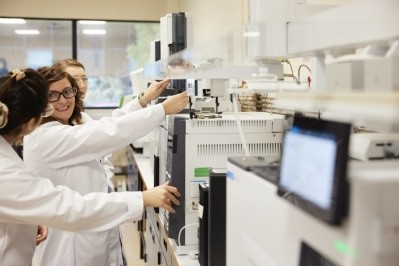Novo Nordisk to open new AI research hub in London

The Danish pharma giant has rented out a new office in the area and plans to move into the space in early 2024, The Telegraph reports.
The company is also seeking to build a new ‘digital innovation hub’ at the site, which will house around 40 employees from the company’s existing R&D and IT divisions.
The new location will enable ‘innovation and collaboration to create and apply artificial intelligence in the discovery and development of new potential drug candidates,' a Novo Nordisk spokesperson told The Telegraph.
The Knowledge Quarter is home to several world-class science and technology companies and centres including GSK, AstraZeneca, the Francis Crick Institute and the Alan Turing Institute.
“The Knowledge Quarter represents a vibrant and diverse AI research ecosystem, world-renowned for its focus to drive advances in fields such as artificial intelligence, data science and engineering,” the spokesperson said.
“Having a presence here will allow Novo Nordisk to better collaborate with leading research institutions, big tech and innovative start-ups, and attract top talent.”
The news comes as Novo Nordisk has seen profits surge after the success of its blockbuster GLP-1 weight-loss drugs Ozempic and Wegovy.
However, this phenomenal success has led to shortages of the drugs – with the immense demand outstripping the company’s supply.
The market is showing no signs of slowing down, with Bloomberg Intelligence predicting that sales of branded anti-obesity drugs could hit $44 billion in 2030 vs. $2.5 billion in 2022.
Novo Nordisk’s new London base and digital innovation efforts will likely play an important role in its future drug development, which has already begun.
For example, in response to soaring demand, the drugmaker is currently developing an oral version of Wegovy.
In a recent phase 3 trial of the daily Wegovy pill, participants lost an average of 15% of their body weight, which is comparable to the effect of the original injected dose.
Martin Holst Lange, executive vice president of development at Novo Nordisk, added: “The choice between a daily tablet or weekly injection for obesity has the potential to offer patients and healthcare providers the opportunity to choose which suits individual treatment preferences.”
The company has also expressed interest in developing a drug designed to prevent obesity in the first place, with CEO Lars Fruergaard Jørgensen establishing a unit studying ‘transformational prevention’ which uses AI to achieve a deeper and more comprehensive understanding of obesity.











